試す 金 - 無料
FAMILY ALBUM
The New Yorker
|December 26, 2022
Robin Coste Lewis travels to the past in her second book.

The poet Robin Coste Lewis’s second collection, the exquisite “To the Realization of Perfect Helplessness” (Knopf ), is a book about how the dead do not stay dead. Not only because the author believes, or wants to believe, that she can awaken the deceased with her pen—“I am trying to make the dead clap and shout,” she writes—but because those who are gone are determined not to stay put. Not in the heart, and certainly not in memory.
In a sense, Lewis’s elegiac and haunted volume, filled with both words and photographs, found her long before she conceived it. Twenty-five years ago, Lewis was living in Rhode Island, teaching at Wheaton College and writing fiction. (She had received a B.A. from Hampshire College, where she compared African and South Asian diasporic literature, in 1989, and studied Sanskrit and comparative religious literature at Harvard’s Divinity School, where she earned a master’s degree in 1997.) But she returned home to Los Angeles after the death of her maternal grandmother, Dorothy Mary Coste Thomas Brooks, to empty out her house, which was going to be razed. Under Brooks’s bed, Lewis found a suitcase containing hundreds of photographs—some in black-and-white, some in color, some posed, others candid—that were a record not only of Lewis’s large extended family but of worlds that had vanished, of decisive moments that had come and gone during the Second Great Migration, of which Lewis’s family, which originated in Louisiana, had been a part. It was unclear who had taken the photographs, but, by collecting the images and storing them together in that suitcase, Brooks had created a kind of narrative. It fell to her granddaughter to place it within the larger history of humanity.
このストーリーは、The New Yorker の December 26, 2022 版からのものです。
Magzter GOLD を購読すると、厳選された何千ものプレミアム記事や、9,500 以上の雑誌や新聞にアクセスできます。
すでに購読者ですか? サインイン
The New Yorker からのその他のストーリー
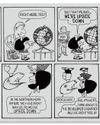
The New Yorker
THE MAGIC OF “MAFALDA”
How an Argentinean comic strip became an international phenomenon.
11 mins
July 07 - 14, 2025 (Double Issue)
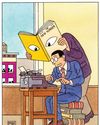
The New Yorker
BY THE BOOK
What we learn from reading the fiction touted in our début issue.
13 mins
July 07 - 14, 2025 (Double Issue)
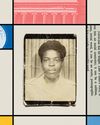
The New Yorker
THE STORY PART
Student days and a search for community.
19 mins
July 07 - 14, 2025 (Double Issue)
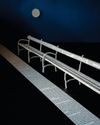
The New Yorker
THE SILENCE
A great silence opened up inside her. But that made it sound more dramatic than it was. It happened by degrees, creeping up slyly. And at times, in certain places and situations, it was expected and welcome—on a long walk, or when a person confessed something pitiful, or at a funeral or a party. In all those places, where once she'd had a lot to say—too much, honestly—now there was this silence and she became a far better listener. Not consciously, that was just one of the consequences. It wasn't a Zen silence or an enlightened silence or anything she'd worked to achieve. It was only a sort of blank. Once, on a mini-break, she'd spotted a sentence graffitied on a bridge in Paris: “The world is everything that is the case.” (It was written in English and stuck in her mind.) The silence felt like that: it spoke for itself. But it could also offend and disappoint others, the same way the world itself never seems enough for some people. It was no use on big family occasions, for example, or when one of her adult daughters called her name from another room, or if someone at work asked for her view on the news of the day. It could make other people feel awkward. But when she was alone with it, whenever it coincided with her own long-standing habit of looking upward into the branches of trees—then it didn't really bother her at all.
23 mins
July 07 - 14, 2025 (Double Issue)
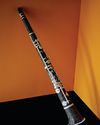
The New Yorker
THE COMEDIAN
My father worked nights as the desk attendant at a cheap hotel downtown. It was a thankless job behind bulletproof glass, which was all he had to shield him from demented drunks and screeching prostitutes, from seven in the evening until four in the morning, the poor man.
24 mins
July 07 - 14, 2025 (Double Issue)

The New Yorker
IS IT THE PHONES?
The tantalizing power of the theory that screens are harming teens.
13 mins
July 07 - 14, 2025 (Double Issue)

The New Yorker
THE END OF THE ESSAY
What comes after A.I. has destroyed college writing?
25 mins
July 07 - 14, 2025 (Double Issue)
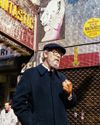
The New Yorker
EASY MUSIC
How Elmore Leonard perfected his style.
23 mins
July 07 - 14, 2025 (Double Issue)
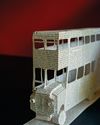
The New Yorker
JUBILEE
A wooden ruler with the etched faces of Henry VIII's six wives running down the middle; ticket stubs from Hampton Court and the Chamber of Horrors, where we walked ahead of our mothers, hand in hand; a few wrappers of Dairy Milk.
34 mins
July 07 - 14, 2025 (Double Issue)
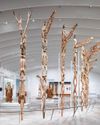
The New Yorker
PRIDE AND PROVENANCE
The Met's new Rockefeller Wing daxxles—and whispers, “Finders, keepers.”
6 mins
July 07 - 14, 2025 (Double Issue)
